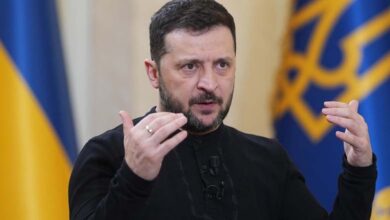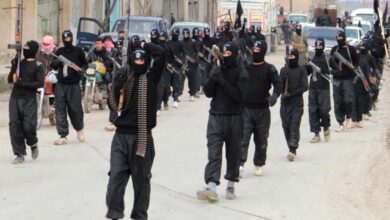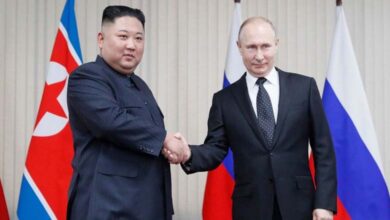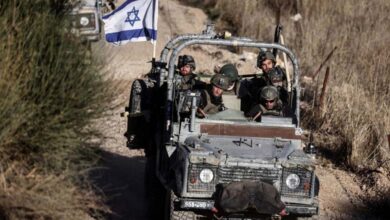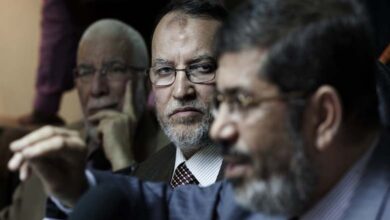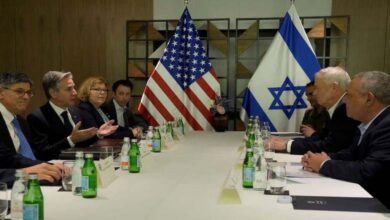Recommendation for Washington to support Morocco as a most trusted partner
The "Washington Institute for Near East Policy" affirms that the United States has an opportunity to reduce the advancement of its Russian and Chinese competitors in North Africa by supporting stable regional partners like Morocco
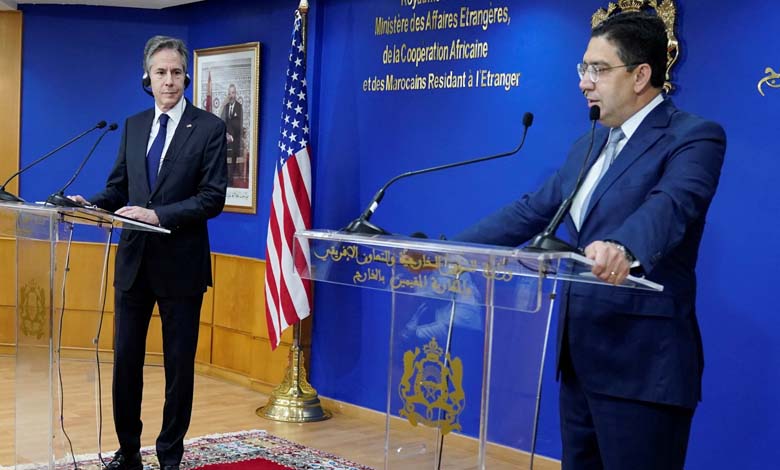
The institute recommended that the United States provide security and technical assistance to Morocco to address various challenges, emphasizing the kingdom’s importance as a strategic partner and explaining why it is the most stable country in North Africa.
A recent report by the institute, prepared by five experts in foreign policy and international relations, highlights that the United States has an opportunity to reduce the advancement of its Russian and Chinese competitors in North Africa, and that this can be achieved by supporting stable regional partners like Morocco.
The report emphasizes the importance of expanding funding programs and demonstrating Washington’s commitment to resolving the Moroccan Sahara conflict by encouraging the concerned parties, including Algeria, to resume negotiations within a roundtable mechanism.
This report adds to the testimonies and statements of senior American officials confirming that the Kingdom of Morocco is one of Washington’s most important strategic allies in North Africa, adopting its vision of events and international positions and cooperating with it in its directions against terrorism and extremism.
The clear American support for Rabat’s vision of granting autonomy under Moroccan sovereignty as a realistic solution to meet the aspirations of the Sahara people is also highlighted. This support represents a diplomatic asset for the kingdom.
The “Washington Institute for Near East Policy” highlights the importance of relations with the Kingdom of Morocco for the United States within the framework of the strategic importance of North African countries for American interests, and the need for Washington to focus on North Africa due to its crucial geographical location for the security of its European allies and its vast energy resources, in addition to the jihadist threats faced by some countries like Libya, as well as the geopolitical competition with Russia and China in this region.
The report emphasizes that the United States has many reasons to intensify its interest in the North African region, including its crucial geographical location for the security of its European allies, its vast energy resources, and the security challenges posed by jihadist threats.
The experts who prepared the report recommend that the United States continue to support its partners in North Africa by providing security and economic support and enhancing cooperation in various fields, emphasizing that the United States’ commitment to resolving regional conflicts such as the fabricated Sahara conflict will contribute to achieving long-term stability in the region.
The US State Department has always highlighted the importance of the multifaceted strategic partnership between the United States and Morocco, serving peace and prosperity in North Africa and the Middle East, especially in terms of exceptional military cooperation.
The Bureau of Political-Military Affairs, affiliated with the US State Department, stated in a statement issued last April that “Morocco is an important partner for the United States in a wide range of regional security issues, serving a common goal of ensuring the stability, security, and prosperity of the Middle East and North Africa region.”
The statement praised the diversity of aspects of close cooperation between Washington and Rabat, noting that the United States “works closely with Morocco to promote regional stability, combat terrorism, strengthen trade and investment relations, and support development efforts and reforms” in the kingdom.
Regarding military cooperation, Washington emphasized that the security alliance between the two countries dates back to the late 1950s, “reflecting the sustainable nature of bilateral relations.”
The statement added that this commitment has been embodied through numerous memorandums of understanding that define the key areas of security and economic cooperation, helping Morocco to address regional challenges and counter the impact of crises in neighboring regions.
In terms of multilateral defense, the United States praised Morocco as a “reliable partner” that joined the Mediterranean Dialogue of NATO in 1995, an initiative aimed at enhancing regional security and stability, before obtaining the status of a major non-NATO ally in 2004.
To illustrate the intensity of exceptional military cooperation, the statement indicated that the bilateral partnership includes, in addition to various military equipment agreements, military support and training and education programs, aiming to enhance regional stability and combat terrorism.
The statement recalled that “Morocco is among the top ten contributors to UN peacekeeping operations in the world,” highlighting that the kingdom has a center of excellence for peacekeeping operations, offering training in areas such as civilian protection, combating misinformation, digitization, telemedicine, mental health, and environmental protection.
The United States also highlighted the “leading” role of Morocco in combating terrorism, noting that the kingdom has been a member of the Trans-Sahara Counterterrorism Partnership since 2005 and a founding member, alongside the United States, of the Global Counterterrorism Forum.
Additionally, Morocco was the first Maghreb country to join the Global Coalition against Daesh in 2014 and currently co-chairs the coalition’s Africa Focus Group.
The United States praised another axis of “solid” bilateral military cooperation between the two countries, namely joint security operations, especially the African Lion exercises.
-
British MPs Urge Cameron to Support Moroccan Autonomy Initiative
-
Algerian Concern Expressed by Polisario Over French Shift in Positions
Since the late 1990s, Morocco has hosted this military exercise, which brings together American and Moroccan forces, as well as participants from more than 20 countries and NATO. The “African Lion” exercise has become, since 2008, “the largest joint military exercise on the continent,” involving thousands of soldiers every year.


